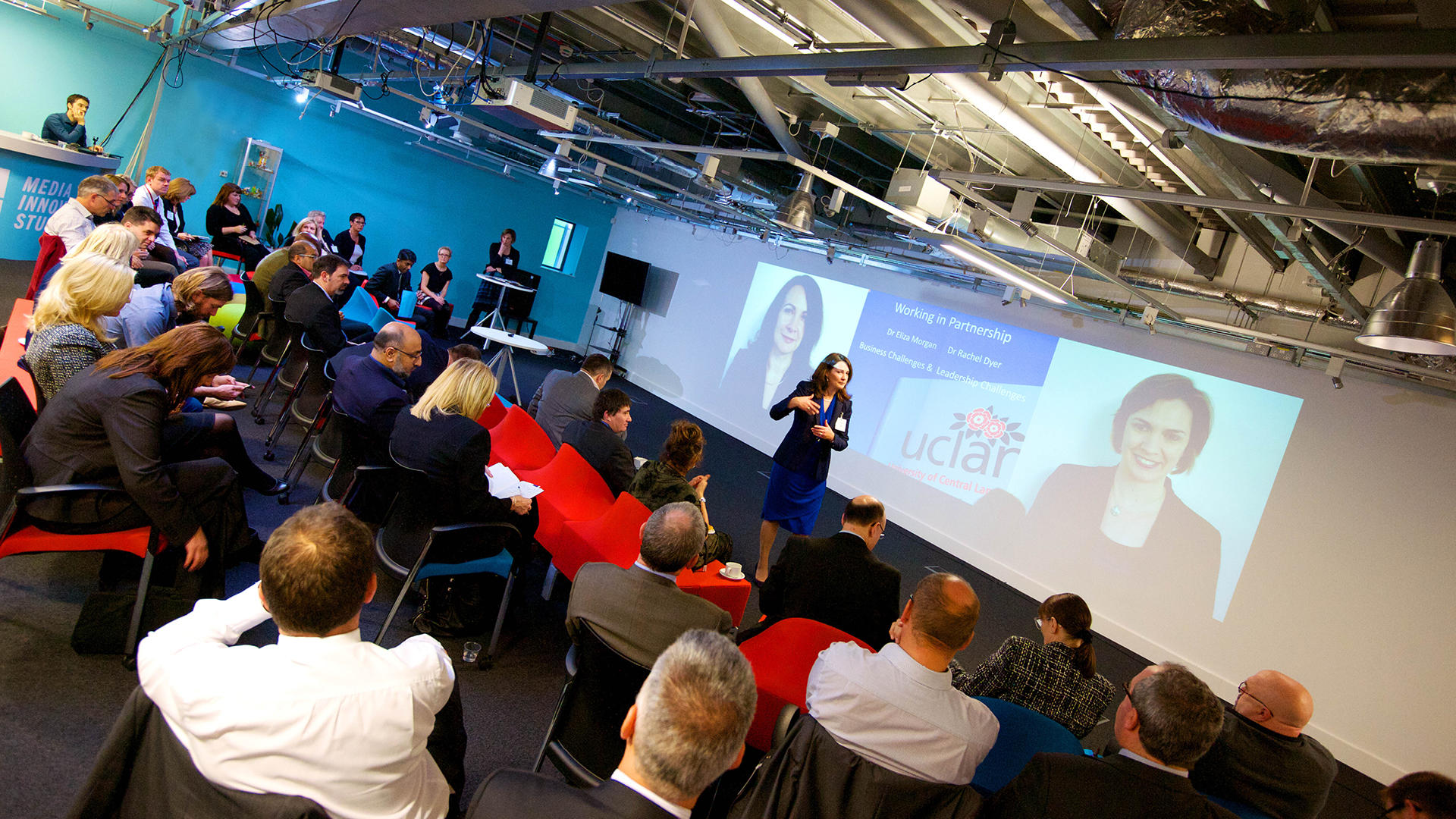A Lancashire office furniture and screens manufacturer is taking steps to reduce its carbon footprint, as a result of an energy management programme recommended by the University of Central Lancashire’s Making Carbon Work (MaCaW) project.
Screentek International is already benefitting from lower energy costs, delivered through simple behavioural changes that will result in an improved bottom line performance going forward.
Establishing the carbon footprint, then shrinking it
Screentek has been based in Coppull, near Chorley, since it was established in 2002. It’s 43-strong workforce includes machinists, upholsterers, designers and accountants.
The company signed up to the MaCaW project after previously working with UCLan’s Innovation Clinic. The project was launched by the University to help Lancashire SMEs move to a low carbon model. Screentek’s management team were keen to implement a low-carbon agenda in order to achieve a smaller carbon footprint and generate energy cost benefits.
Throughout the process, which is ongoing as the MaCaW team continues to monitor the energy use of the business, MaCaW’s Business Engagement Officer Mark Nelson and Project Manager Josh Balmer worked closely with Screentek to analyse data and produce a carbon assessment audit. As a result, they were able to establish the company’s carbon footprint and then suggest ways in which it could reduce its energy usage - including changing to LED lighting and switching to biomass heaters, something the business had already been looking into, and scoping out the installation of solar PV. Other recommendations also being considered by Screentek include:
- Introduction of an energy policy
- Fitting Ecogate technology to the extraction system to reduce energy use when machines aren’t running
- Implementing motion sensors for factory lighting
- Transitioning to a paperless delivery method
Specialist advisers work closely with the business
Nick Walker, Screentek Operations Manager, said: “Working with MaCaW has been a real eye opener as we look for ways to reduce our carbon footprint. MaCaW’s specialist advisers went about their business efficiently with a friendly and collaborative approach, working closely with our business and always being accessible without being intrusive into our day-to-day operations. While we had started looking into ways of reducing our carbon footprint, we’ve now been introduced to certain practices that without the expertise of MaCaW, we might never have identified.
"The findings of the technical analysis carried out were presented in an easy-to-follow format, and the team has continued to help and support us to understand the outcomes and implement their recommendations which will have a significant impact on the business."
Mark Nelson said: “Our experience and specialist knowledge has helped Screentek to spot simple practices and procedures that could be adjusted to create a working environment with lower carbon usage, without affecting productivity. The implementation of a formal energy management system will significantly reduce the company’s energy bills in the future.
“In addition, setting the carbon footprint baseline will enable Screentek to be more competitive in future tendering processes, as it will provide strong evidence that they have considered and then implemented effective strategies to reduce their carbon footprint.”
MaCaW is a University of Central Lancashire (UCLan) project, an industry and academic collaboration funded by the European Regional Development Fund (ERDF) alongside UCLan, and supported by Boost; Lancashire’s business growth hub.
For more information please email macaw@uclan.ac.uk.

